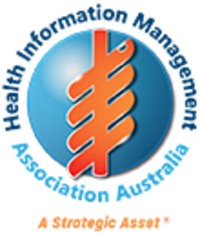
This role has a moderate level of AI exposure. AI can enhance efficiency for some tasks, but this job still relies on human skills and decision-making.
Explore all careersA Clinical Coder translates patient records into codes for data collection, requiring strong analytical skills and attention to detail.
Get qualified to work as a Clinical Coder with a course recognised across Australia. Speak to a training provider to learn more.





In Australia, a full time Clinical Coder generally earns $1,600 per week ($83,200 annual salary) before tax. This is a median figure for full-time employees and should be considered a guide only. As you gain more experience you can expect a potentially higher salary than people who are new to the industry.
 Courses.com.au Team
Courses.com.au Team
This industry has seen strong growth in employment numbers in recent years. There are currently 1,300 people working as a Clinical Coder in Australia compared to 1,100 five years ago. Clinical Coders may find work in larger towns and cities where major medical facilities are located.
Source: Australian Government Labour Market Insights
 Courses.com.au Team
Courses.com.au Team
If a career as a Clinical Coder interests you, consider enrolling in a Certificate IV in Clinical Classification. This course covers health classification standards and explains how they are applied to human anatomy, physiology and health statistics.
 Courses.com.au Team
Courses.com.au Team
Browse occupations related to Clinical Coder



If you're interested in starting a rewarding career in the healthcare sector, exploring Clinical Coder courses in Melbourne is an excellent first step. These courses cater to various experience levels, ensuring that both beginners and experienced professionals can find suitable options. For those new to the field, the Interpret Clinical Documentation Using Knowledge of Anatomy and Physiology HLTCCD004 course is a fantastic way to gain foundational skills. This training will equip you with the necessary knowledge to understand clinical documentation effectively.
For those with prior experience or qualifications looking to advance their careers, there are several excellent Clinical Coder courses in Melbourne. Popular advanced options include the Diploma of Clinical Coding HLT50321, the Diploma of Business (Records and Information Management) (Specialising in Health Administration) BSB50120, and the Diploma of Healthcare Documentation 10795NAT. Additionally, the Bachelor of Health Information Management provides an excellent pathway into the field for those seeking higher education qualifications.
In Melbourne, several esteemed training providers deliver these courses, including La Trobe University. By enrolling in these certified programs, you can rest assured that you're receiving top-notch education recognised by industry bodies. Completing these courses will open up a variety of job roles, such as becoming a Patient Liaison Officer, Dental Receptionist, or Practice Manager. These roles are vital within the healthcare landscape and offer rewarding career possibilities.
For those considering further exploration into related fields, the study areas for a career in clinical coding extend into healthcare courses and medical administration. In Melbourne, job opportunities abound, making this an opportune moment to enhance your skills. Whether you're aiming for roles like Dental Office Manager or Medical Secretary, the pathways through Clinical Coder courses in Melbourne are robust and career-oriented, ensuring you are well-prepared for the future.